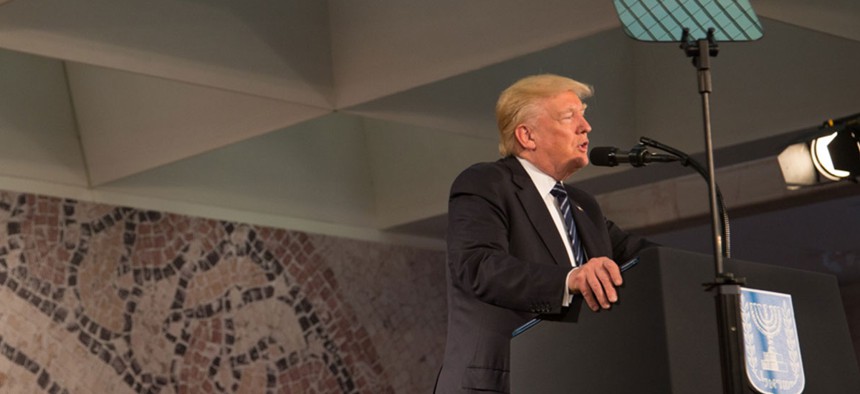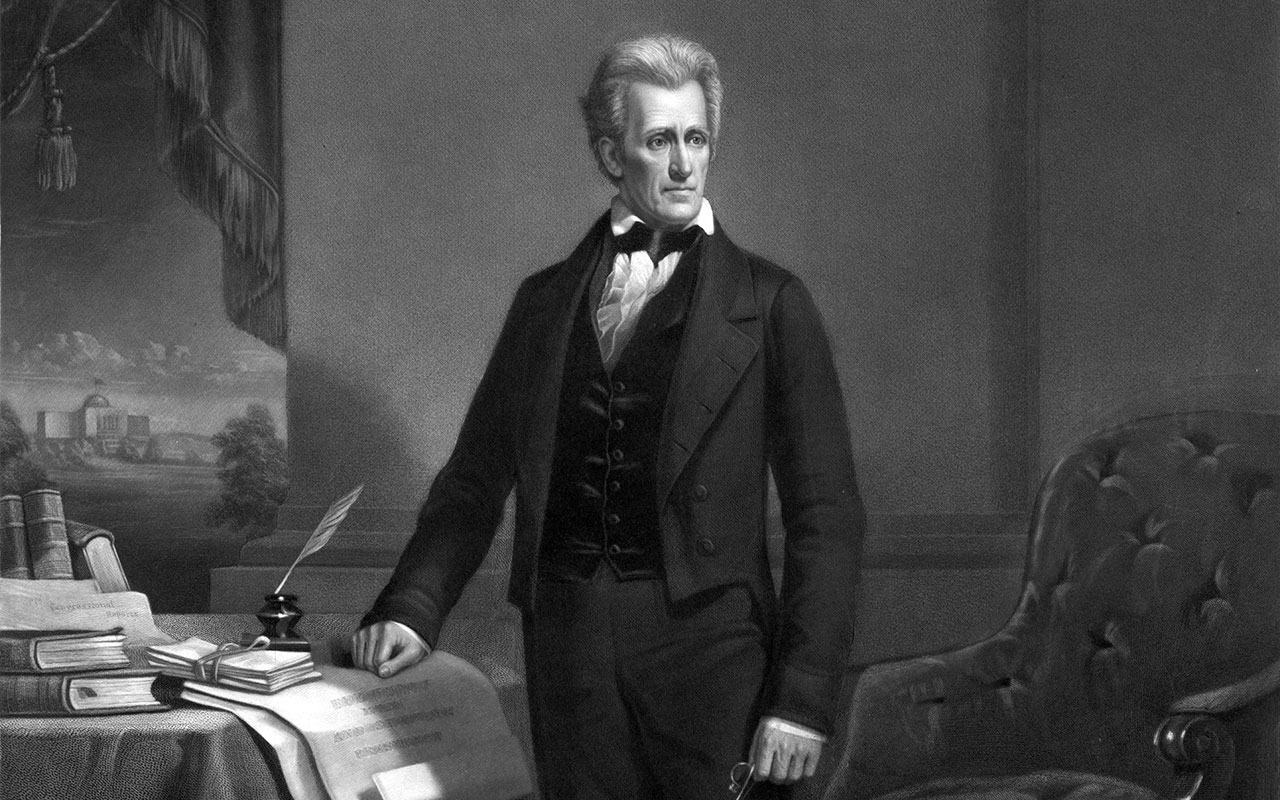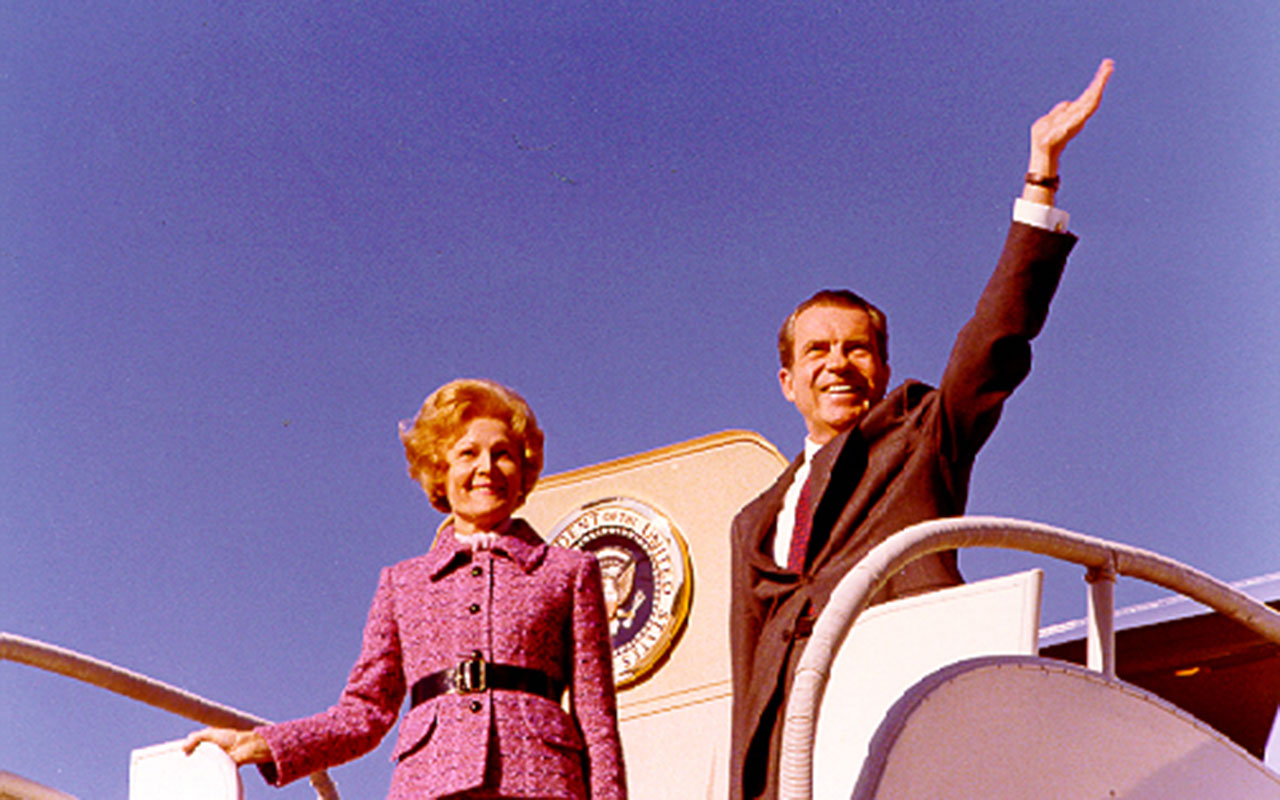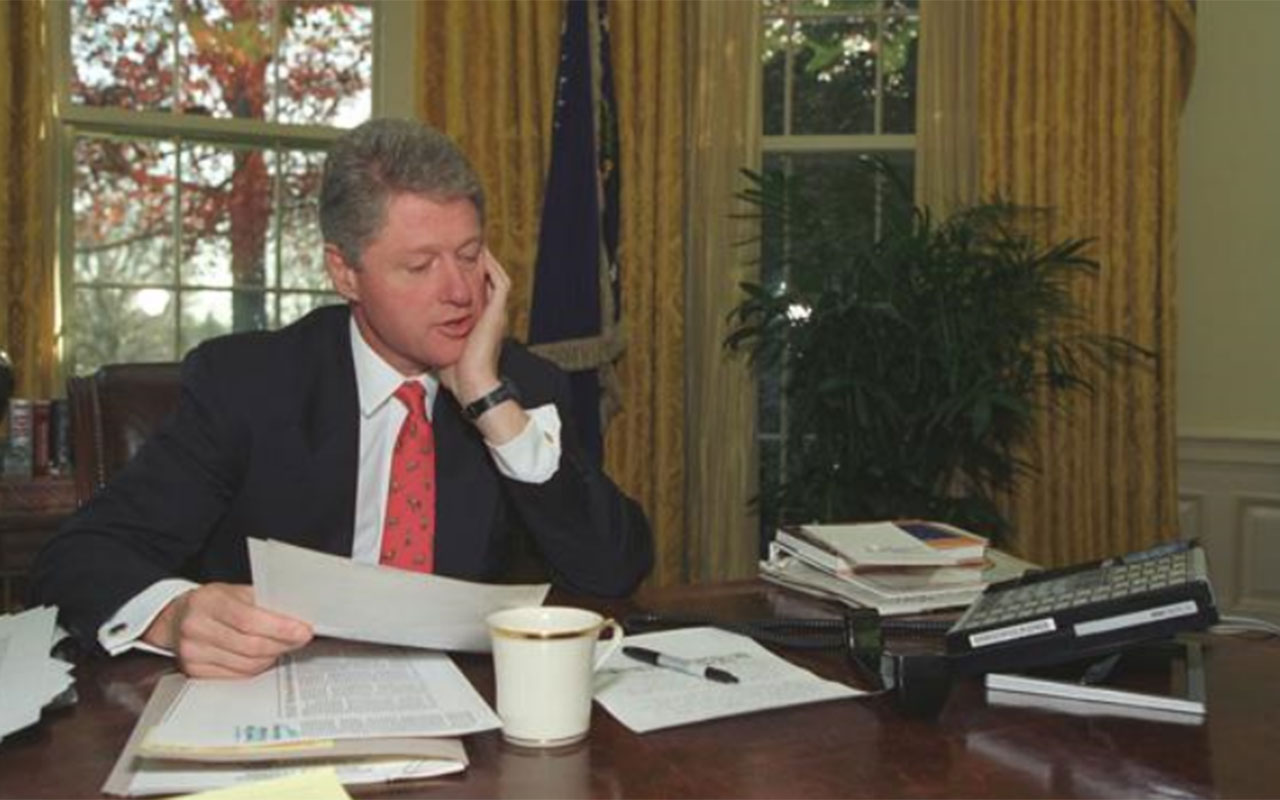
Trump speaks in Israel in May. Shealah Craighead/White House
Trump Isn’t The First President Accused Of Obstruction Of Justice—Not Even Close
History loves company.
Special counsel Robert Mueller, who is leading the investigation into Russian interference in the 2016 US presidential election, is now reportedly expanding the scope of that probe to look at whether president Donald Trump tried to obstruct justice in the investigation.
This striking development, alluded to in the recent Senate testimony of former FBI director James Comey—who said under oath that he had given Mueller his memos detailing his interactions with the president—was first reported by the Washington Post last night (June 14).
The White House did not dispute the account. “The FBI leak of information regarding the president is outrageous, inexcusable, and illegal,” Mark Corallo, a spokesman for Trump’s personal attorney Mark Kasowitz told the Post.
The news means Trump will be the third US president to face an investigation on these allegations (the fourth, if you include Andrew Jackson, who was charged before he became president).
What is obstruction of justice?
According to the legal definition in the US Code of Laws obstruction of justice is a felony offense that is committed by an individual who:
corruptly, or by threats or force, or by any threatening letter or communication influences, obstructs, or impedes or endeavors to influence, obstruct, or impede the due and proper administration of the law under which any pending proceeding is being had before any department or agency of the United States, or the due and proper exercise of the power of inquiry under which any inquiry or investigation is being had by either House, or any committee of either House or any joint committee of the Congress.
While the definition may sound fairly broad, the burden of proof for obstruction of justice is “exceedingly high,” according to Lawfare. In order to meet the statutory bar for the charge, a defendant does not have to be successful in the attempt to impede “the due administration of justice” but it must be proven beyond a reasonable doubt that he or she specifically intended to do so. Proving the intent behind any action can be a considerable challenge for prosecutors.
Which U.S. presidents have faced this before?
Trump is certainly not the first US president to be investigated for obstruction of justice. He joins a cast of characters that includes Bill Clinton, Richard Nixon, and Jackson.
In 1812, Jackson, then a major general for the US army, was indicted for obstruction of justice as well as contempt of court. He was charged for both defying a judge’s order and then imprisoning the judge, Louis Louaillier, (paywall) who issued the initial order.
When Jackson finally appeared before the court, he “refused to answer the interrogatories and promptly received a fine of $1,000 which he paid and then left,” according to the Department of Justice.
In 1829, Jackson became US president. (Trump has cited him as a personal hero.)
In 1974, the House judiciary committee brought articles of impeachment against Nixon following the Watergate scandal, which included a count of obstruction of justice.
Nixon “prevented, obstructed, and impeded the administration of justice,” the committee wrote, by “using the powers of his high office, engaged personally and through his close subordinates and agents, in a course of conduct or plan designed to delay, impede, and obstruct the investigation of such illegal entry; to cover up, conceal and protect those responsible; and to conceal the existence and scope of other unlawful covert activities.”
Nixon resigned on Aug. 9 that year rather than face impeachment. He was pardoned by his successor to the office of president, Gerald Ford, a month later.
Clinton also faced obstruction of justice charges as part of his 1998 impeachment proceedings for, among other allegations, encouraging Monica Lewinsky to file a false affidavit and to give false testimony.
Notably, during Clinton’s trial, a Republican senator from Alabama had some harsh words for the president on the question of obstructing justice. “The chief law-enforcement officer of the land, whose oath of office calls on him to preserve, protect and defend the Constitution, crossed the line and failed to defend and protect the law and, in fact, attacked the law and the rights of a fellow citizen,” the senator said. “Under our Constitution, equal justice requires that he forfeit his office. For these reasons, I felt compelled to vote to convict and remove the President from office.”
That lawmaker was Jeff Sessions, who is now US attorney general, and who spent the better part of a June 13 Senate hearing refusing to answer questions about his conversations with Trump before Comey was fired.
What happens next for Trump?
Even if the Mueller probe finds that Trump’s actions amount to obstructing justice, it’s unlikely that any charges would be brought against a sitting president.
Based on historic and legal precedent, impeachment proceedings would be the more probable—if not politically unviable—next step. As Lawfare writes:
Obstruction of justice formed the first article of impeachment of President Nixon and the third article of impeachment of President Clinton. In both instances, the articles contained specific allegations amounting to a pattern of obstruction. Both articles alleged false statements by the president, concealing evidence, and counseling witnesses to lie, among other allegations.
Of course any impeachment would first require sufficient public outrage to move a majority-Republican congress to act against a president from their own party.
So, are we entering a 21st-century version of Watergate? For now, the answer seems to be no. But as analyst Daniel DePetris wrote for Quartz last month, though the Nixon scandal shook American political institutions to the core, it also proved that “the president of the United States isn’t above the law, no matter how powerful he is.”









